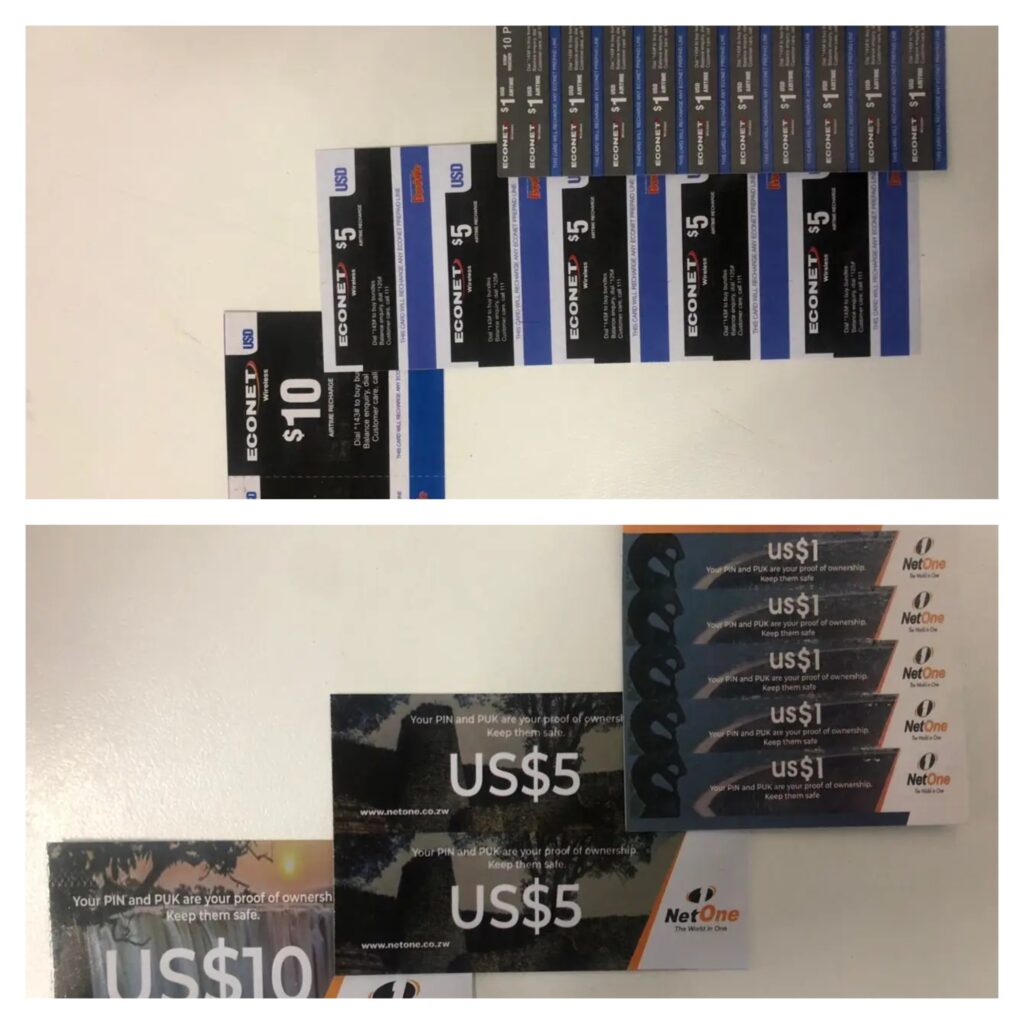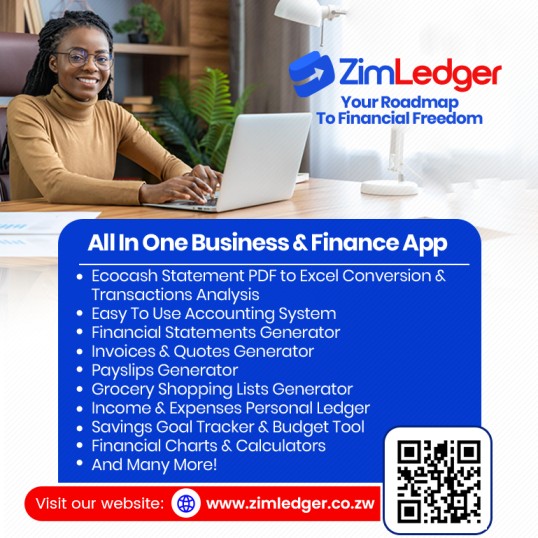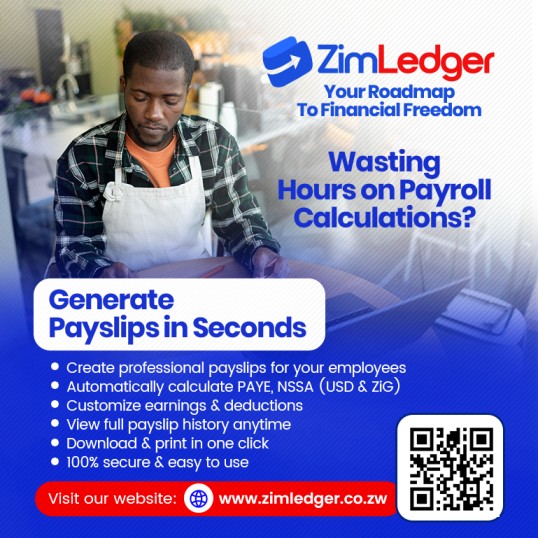The telecommunications sector in Zimbabwe continues to thrive despite economic challenges, making airtime sales one of the most resilient and accessible business opportunities for entrepreneurs across the country. Whether you are considering entering the wholesale market or starting a retail operation, the airtime business offers multiple pathways to generate consistent income with relatively modest startup capital.
In this comprehensive guide, we will explore every aspect of the airtime business in Zimbabwe, from initial capital requirements to profit projections, supplier networks, and strategic considerations for long-term success. By the end of this article, you will have a complete understanding of how to establish and scale your airtime business effectively.
Understanding the Zimbabwe Airtime Market Landscape
Market Dynamics and Consumer Behavior
Zimbabwe’s telecommunications market is dominated by three major players: Econet Wireless, NetOne, and Telecel Zimbabwe. Econet commands approximately 70-75% of the market share, making it the primary focus for most airtime dealers. However, successful businesses often diversify across all three networks to capture the entire customer base.
Consumer demand patterns show consistent usage across voice calls, SMS, and increasingly, data bundles. The rise of mobile money services like EcoCash has further integrated airtime into daily financial transactions, creating additional revenue streams for dealers who understand these interconnected services.
Economic Factors Affecting the Business
The airtime business operates within Zimbabwe’s unique economic environment, where US dollar transactions dominate despite local currency initiatives. This dollarization provides stability for pricing but requires careful cash flow management. Seasonal variations affect demand, with higher consumption during festive periods, school holidays, and month-end salary payments.
Wholesale Airtime Business: The Foundation of Distribution
Detailed Requirements and Application Process
Becoming an authorized Econet wholesale dealer requires meeting specific criteria and following a structured application process. The requirements serve to ensure that only legitimate, established businesses enter the wholesale network.
Complete Documentation Checklist:
- Econet Declaration Form: This must be completed in full and signed by all directors or authorized signatories.
- Certificate of Incorporation: A certified copy demonstrating your company’s legal registration with the Registrar of Companies.
- Form CR14: This document shows your company’s current directorship and shareholding structure.
- Director Documentation: Each director must provide a colored passport photograph and certified copies of their National Identity Document. This ensures compliance with know-your-customer regulations.
- Proof of Residence: Recent utility bills, lease agreements, or council statements for both the business premises and individual directors.
- VAT Registration: Your VAT registration certificate and current compliance status.
Application Submission Process:
Applications must be submitted at designated Econet Shops.
Capital Requirements and Financial Commitments
The wholesale airtime business operates on volume-based economics with tight margins but significant revenue potential.
Initial Investment Breakdown:
- Minimum Purchase Order: 200 recharge cards at US$10 face value each
- Total Face Value: US$2,000
- Actual Payment Required: US$1,750
- Effective Cost Per Dollar: US$0.875 per US$1 of airtime
This pricing structure provides a 12.5% discount on face value, which forms the foundation of your profit margin. However, the real profitability comes from volume turnover rather than individual transaction margins.
Working Capital Considerations:
Beyond the initial purchase, successful wholesale operations require:
- Cash Flow Buffer: US$5,000-10,000 for continuous restocking
- Storage Facilities: Secure premises for inventory management
- Insurance: Coverage for stock and business premises
Pricing Strategies and Profit Analysis
Wholesale Pricing Structure:
Wholesale dealers typically sell to retailers at US$0.88 to US$0.90 per dollar of face value. The optimal pricing strategy balances competitive rates with sustainable margins:
- Conservative Pricing: US$0.88 per dollar (profit margin: 0.5 cents)
- Standard Pricing: US$0.885 per dollar (profit margin: 1 cent)
- Premium Pricing: US$0.90 per dollar (profit margin: 2.5 cents)
Volume-Based Profitability:
The wholesale model requires significant daily volumes to generate meaningful profits:
- Low Volume: US$1,000 daily sales = US$10 daily profit
- Medium Volume: US$2,500 daily sales = US$25 daily profit
- High Volume: US$5,000 daily sales = US$50 daily profit
- Exceptional Volume: US$10,000 daily sales = US$100 daily profit
Monthly Profit Projections:
Assuming 26 working days per month:
- US$2,000 daily sales = US$520 monthly profit
- US$3,500 daily sales = US$910 monthly profit
- US$5,000 daily sales = US$1,300 monthly profit
Building a Wholesale Distribution Network
Retail Partner Development:
Success in wholesale requires building a network of reliable retail partners. Effective strategies include:
- Geographic Coverage: Establish retailers in different suburbs and towns
- Relationship Management: Regular visits and support for retail partners
- Credit Facilities: Selective credit terms for trusted, high-volume retailers
- Training Programs: Educate retailers on sales techniques and customer service
Retail Airtime Business: Direct Customer Engagement
Startup Capital and Initial Investment
The retail airtime business offers the lowest barrier to entry among telecommunications-related businesses, making it accessible to a broader range of entrepreneurs.
Minimum Startup Investment:
- Initial Stock: US$10 minimum purchase (typically costs US$8.80-8.90)
- Marketing Materials: Airtime apron and signage (often provided free)
- Display Setup: Simple table or display board (US$10-20)
- Float Cash: US$20-50 for making change
- Total Initial Investment: US$50-100
Optimal Startup Investment:
For better positioning and inventory variety:
- Diversified Stock: US$100 across different denominations and networks
- Premium Display: US$50 for attractive, secure display setup
- Marketing Materials: US$30 for professional signage and branding
- Working Capital: US$100 for cash flow and expansion
- Total Recommended Investment: US$280-300
Product Mix and Inventory Management
Denomination Strategy:
Different customer segments prefer different airtime denominations:
- US$1 Cards: Popular with low-income earners, students, emergency purchases
- US$5 Cards: Standard denomination for regular users, small businesses
- US$10 Cards: Preferred by higher-income individuals, bulk buyers
Network Distribution:
While Econet dominates volume, diversification ensures comprehensive market coverage:
- Econet: 70% of inventory (highest demand)
- NetOne: 20% of inventory (average demand)
- Telecel: 10% of inventory (niche markets, backup option)
Inventory Turnover Optimization:
- Daily Restocking: High-traffic locations may require multiple restocks
- Demand Forecasting: Track daily patterns to optimize purchasing
- Seasonal Adjustments: Increase inventory during peak periods
- Network Balancing: Monitor which networks move fastest in your location
Location Analysis and Site Selection
Location determines success more than any other factor in retail airtime sales. Comprehensive site analysis should consider multiple variables:
High-Performance Locations:
- Transport Hubs: Bus terminals, railway stations, taxi ranks
- Advantages: High foot traffic, captive audience waiting
- Challenges: Competition, potential regulation issues
- Expected Daily Sales: US$150-300
- Shopping Centers: Established malls and commercial complexes
- Advantages: Steady traffic, security, weather protection
- Challenges: Rental costs, formal competition
- Expected Daily Sales: US$100-250
- CBD Areas: Central business districts and commercial zones
- Advantages: Office workers, high-value customers
- Challenges: Municipal regulations, harassment risks
- Expected Daily Sales: US$200-500
- Residential Areas: High-density suburbs and informal settlements
- Advantages: Regular customers, community relationships
- Challenges: Lower disposable income, security concerns
- Expected Daily Sales: US$50-200
Location Evaluation Criteria:
- Foot Traffic Volume: Count pedestrians during different time periods
- Vehicle Traffic: Consider motorists who may stop for purchases
- Competition Density: Assess existing airtime sellers in the area
- Security Factors: Evaluate theft risks and police presence
- Regulatory Environment: Understand local council regulations
- Infrastructure: Access to shelter, storage, and transportation
Revenue Optimization and Profit Maximization
Pricing Strategy Development:
Retail airtime pricing requires balancing competitiveness with profitability:
- Standard Pricing: US$1.00 per dollar (11.5% margin)
Daily Revenue Projections by Location Type:
Urban High-Traffic Locations:
- Conservative Estimate: US$200-300 daily
- Realistic Target: US$300-450 daily
- Exceptional Performance: US$500+ daily
Suburban Moderate-Traffic Locations:
- Conservative Estimate: US$80-120 daily
- Realistic Target: US$120-200 daily
- Exceptional Performance: US$250+ daily
Rural or Low-Traffic Locations:
- Conservative Estimate: US$30-60 daily
- Realistic Target: US$60-100 daily
- Exceptional Performance: US$150+ daily
Complementary Revenue Streams
Add-On Product Integration:
Successful retailers expand beyond pure airtime sales:
- Tobacco Products: Cigarettes (Pacific, Madison, Dunhill)
- Confectionery: Sweets, gum, mints
- Snacks : Potato Chips, ZapNax, Lays
- Beverages: Soft drinks, water, energy drinks
- Mobile Accessories: Earphones, chargers, phone covers
Service-Based Revenue:
- Mobile Money Services: EcoCash agent commissions
- Phone Charging: Small fee for charging services
- SIM Card Sales: Network registration and SIM card sales
- Data Bundle Consulting: Help customers choose optimal packages
Risk Management and Mitigation Strategies
Security and Theft Prevention
The airtime business involves carrying cash and valuable stock, making security planning essential:
Personal Security Measures:
- Vary Routines: Change routes and timing regularly
- Dress Modestly: Avoid displaying wealth or expensive items
- Partner Systems: Work with other vendors for mutual protection
Stock Security:
- Secure Storage: Lockable boxes or containers for inventory
- Distribution Strategy: Carry only necessary daily stock
- Insurance Coverage: Protect against theft and loss
- Digital Records: Maintain electronic inventory records
Regulatory Compliance and Legal Considerations
Municipal Regulations:
- Trading Licenses: Obtain necessary permits from local councils
- Location Permits: Ensure compliance with zoning regulations
- Tax Obligations: Register for income tax and maintain records
- Health and Safety: Meet any applicable safety requirements
Network Compliance:
- Authorized Dealer Status: Maintain good standing with network providers
- Quality Standards: Ensure genuine products and proper handling
Financial Risk Management
Cash Flow Management:
- Daily Banking: Reduce cash-on-hand exposure
- Inventory Turnover: Optimize stock levels to minimize tied capital
- Credit Control: Careful management of any credit sales
- Emergency Funds: Maintain reserves for unexpected situations
Market Risk Mitigation:
- Diversification: Multiple networks and complementary products
- Flexible Locations: Ability to relocate if necessary
- Relationship Building: Strong supplier and customer relationships
- Market Intelligence: Stay informed about industry changes
Marketing and Customer Engagement
Digital Marketing Strategies:
- WhatsApp Business: Customer communication and order management
- Social Media Presence: Facebook and Instagram for brand building
- Google My Business: Local search optimization for fixed locations
- Customer Database: Maintain contact lists for bulk buyers
Customer Service Excellence:
- Product Knowledge: Understand all network offerings and promotions
- Consultative Selling: Help customers choose optimal packages
- After-Sales Support: Assist with technical issues and complaints
- Loyalty Programs: Reward regular customers with incentives
Scaling and Growth Strategies
Expansion Pathways
Horizontal Expansion:
- Multiple Locations: Replicate successful models in new areas
- Product Diversification: Add related telecommunications products
- Service Integration: Incorporate mobile money and other services
- Franchise Development: License successful models to other entrepreneurs
Vertical Integration:
- Wholesale Progression: Graduate from retail to wholesale operations
- Distribution Networks: Build networks of sub-retailers
- Technology Services: Add phone repair, unlocking, and technical services
- Corporate Contracts: Secure bulk supply agreements with businesses
Long-Term Business Development
Market Leadership Strategies:
- Brand Development: Build recognition and trust in your market
- Innovation Adoption: Stay current with new products and services
- Community Integration: Become an integral part of local business ecosystem
- Mentorship Programs: Help develop other entrepreneurs while building networks
Exit Strategies:
- Business Sale: Develop systems that make the business attractive to buyers
- Franchise Licensing: Convert successful operations into franchise opportunities
- Management Transition: Train managers to run operations independently
- Investment Diversification: Use profits to invest in complementary businesses
Conclusion: Building a Sustainable Airtime Business
The airtime business in Zimbabwe offers genuine opportunities for entrepreneurs willing to commit to understanding market dynamics, managing risks effectively, and focusing on customer service excellence. Success requires careful attention to location selection, inventory management, and relationship building with both suppliers and customers.
Whether you choose the wholesale path with its emphasis on volume and distribution networks, or the retail approach with its direct customer interaction and location-dependent success factors, the fundamentals remain consistent: understand your market, manage your risks, and focus on providing value to your customers.
The telecommunications sector will continue evolving, with new technologies and services creating additional revenue opportunities for prepared entrepreneurs. Those who build strong foundations now, while staying adaptable to market changes, will be best positioned to capitalize on future growth opportunities.
Remember that successful businesses are built on relationships, reliability, and consistent service delivery. Focus on these fundamentals while implementing the strategies and insights provided in this guide, and your airtime business can become a foundation for long-term financial success.
Supplier Directory and Contact Management
Directory Disclaimer: The supplier contact details provided in this guide are for informational purposes only. ZimLedger does not have any affiliation with these suppliers, nor do we endorse or guarantee the quality, pricing, or reliability of their products and services. It is the responsibility of the reader to conduct due diligence before engaging with any supplier, including verifying their credentials, pricing, and compliance with relevant regulations.
Harare Airtime Wholesalers Contacts:
- +263787324215
- +263772138138
- +263778937605
- +263783807698
- +263777053065
- +263774450751
- +263772887319
- +263778242005
- +263772295166
Supplier Evaluation Criteria:
- Reliability: Consistent stock availability and delivery
- Pricing: Competitive rates and transparent fee structure
- Payment Terms: Flexible payment options and credit facilities
- Support Services: Training, marketing materials, and business advice
- Geographic Coverage: Delivery capabilities to your location
Building Supplier Relationships
Negotiation Strategies:
- Volume Commitments: Negotiate better rates for guaranteed volumes
- Payment Terms: Establish credit facilities for trusted relationships
- Exclusive Territories: Discuss geographic exclusivity arrangements
- Marketing Support: Request promotional materials and advertising support
Becoming an Official Wholesaler
As mentioned throughout this guide, to become a recognized Econet wholesaler, you must apply directly at any Econet shop. There are no third-party contacts or intermediaries for this process – Econet handles wholesale applications directly through their official retail outlets.
ZimLedger
ZimLedger is the all in one business and finance platform for Zimbabwe. It generates quotes, invoices, payslips and financial statements, manages business ledgers, tracks income and expenses, and builds shopping lists. ZimLedger offers a simple yet powerful solution tailored to local needs. Whether you are budgeting in ZiG or USD, managing business accounts, converting Ecocash statements, or tracking household expenses, ZimLedger empowers you to stay organised, make informed financial decisions, and grow your wealth—right from your phone or computer.














I want to start
I want to start